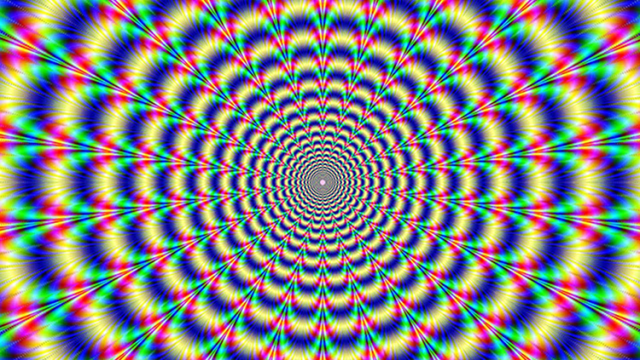A hallucination is a perception in the absence of external stimulus that has qualities of real perception. Hallucinations are vivid, substantial, and are perceived to be located in external objective space. They are distinguishable from several related phenomena, such as dreaming, which does not involve wakefulness; pseudohallucination, which does not mimic real perception, and is accurately perceived as unreal; illusion, which involves distorted or misinterpreted real perception; and imagery (imagination), which does not mimic real perception and is under voluntary control. Hallucinations also differ from delusional perceptions , in which a correctly sensed and interpreted stimulus is given some additional significance.
Hallucinations can occur in any sensory modality—visual, auditory, olfactory, gustatory, tactile, proprioceptive, equilibrioceptive, nociceptive, thermoceptive and chronoceptive.
A mild form of hallucination is known as a disturbance, and can occur in most of the senses above. These may be things like seeing movement in peripheral vision, or hearing faint noises or voices. Auditory hallucinations are very common in schizophrenia. They may be benevolent or malicious, cursing the subject, etc. Auditory hallucinations of the malicious type are frequently heard Like auditory hallucinations, the source of the visual counterpart can also be behind the subject's back. Their visual counterpart is the feeling of being looked or stared at, usually with malicious intent. Frequently, auditory hallucinations and their visual counterpart are experienced by the subject together.
Hypnagogic hallucinations and hypnopompic hallucinations are considered normal phenomena. Hypnagogic hallucinations can occur as one is falling asleep and hypnopompic hallucinations occur when one is waking up. Hallucinations can be associated with drug use, sleep deprivation, psychosis, neurological disorders, and delirium tremens.

